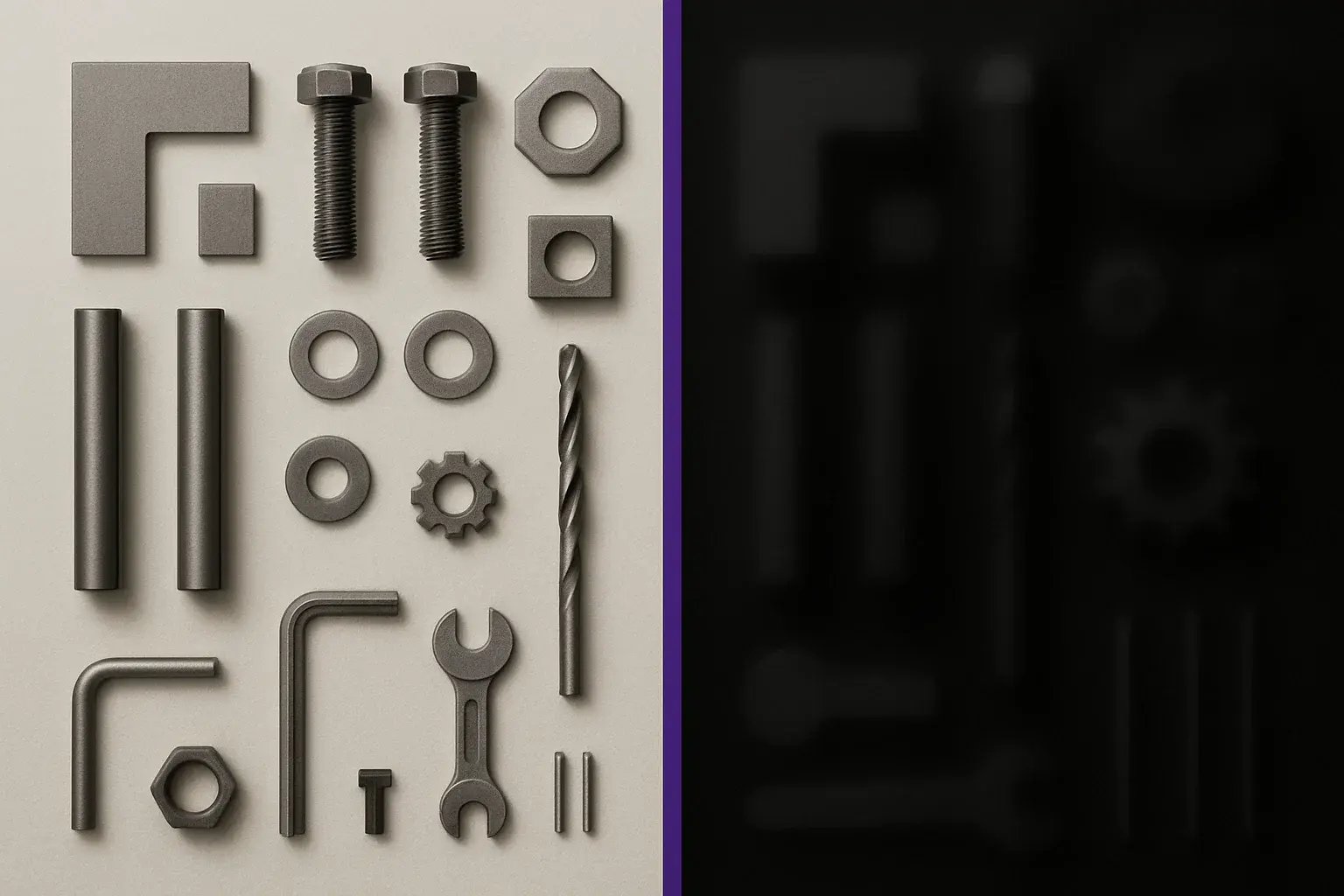5 Workshop Habits That Quietly Cost You Thousands
Discover the common habits that slowly drain profits in your workshop. From inefficiencies to cultural blind spots, this article helps you identify what’s holding you back - and how to fix it.
It’s rarely the big mistakes that hurt you.
It’s the little things – the quiet, everyday habits that chip away at your margin, slow the team down, and turn jobs from profitable to painful.
Here are five common habits we see in fabrication shops that cost serious money over time (and how to fix them).
1. Rushed Quotes Without a Proper Check
We get it – you’re busy, and quotes need to go out fast.
But if you’re not double-checking material prices, supplier lead times, and labor estimates, you’re gambling with your margin.
Small underquotes stack up fast.
A few jobs here and there at 5 to 10% under cost? That’s your profit gone for the month.
Fix it:
Have a system that keeps you consistent. Slow down just enough to quote right – then you can quote fast and profitably.
2. Poor Job Handoffs from Office to Workshop
When the team has to walk back into the office to ask,
“What’s this for?”
“Where’s the drawing?”
“Which material are we using?”
– you’ve already lost money.
Every interruption is time and focus gone.
Not to mention the risk of rework if they guess wrong.
Fix it:
Make sure every job hits the floor with clear instructions, drawings, and material notes. If it’s not ready, don’t release it.
3. No Visual Job Tracking
If you’re relying on memory or scrap paper to know what’s in progress, what’s at what stage, or what’s next, things will slip.
You can’t fix delays you can’t see.
Fix it:
Set your team up with clear, real-time visibility. Everyone should be able to see what’s moving, what’s stuck, and what’s coming – without needing to ask.
4. Not Tracking Time Spent on Jobs
If you’re not measuring how long things actually take, you’re quoting blind.
Jobs you thought took 4 hours might be taking 6 or 7 – but you won’t know until it’s too late.
Fix it:
Use a system that makes time tracking part of the workflow. The goal isn’t to micromanage – it’s to understand what’s really going on so you can price jobs properly and plan your week with confidence.
5. Too Much ‘Verbal’ Communication
When instructions, changes, or approvals are given on the fly (and not written down), you open the door for costly mistakes.
“But you said…” becomes a time suck.
And it’s hard to back yourself up when things go sideways.
Fix it:
Put it in writing. Confirm changes via text, email, or job notes. It protects your team – and your business.
Final Word
No one sets out to lose money.
But in busy shops, it’s the small inefficiencies that do the damage.
Fixing just one or two of these habits can make a huge difference – not just to your bottom line, but to the way your whole shop runs.
Take the quick audit below - and consider having your team do it too. Comparing answers can spark some great conversations.
📊 Workshop Habits Health Check
Think your workshop is running tight?
Score yourself on each habit from 1 (Not true at all) to 5 (Absolutely true).
Be honest - no one else is watching.
1. We quote consistently using a standard system or template.
1 ☐ 2 ☐ 3 ☐ 4 ☐ 5 ☐
2. Anyone on the team can tell what stage each job is up to at a glance.
1 ☐ 2 ☐ 3 ☐ 4 ☐ 5 ☐
3. We schedule work in advance and review it as a team each day.
1 ☐ 2 ☐ 3 ☐ 4 ☐ 5 ☐
4. Handover between quoting, production, and delivery is smooth and consistent.
1 ☐ 2 ☐ 3 ☐ 4 ☐ 5 ☐
5. Most days run to plan - not firefighting or last-minute chaos.
1 ☐ 2 ☐ 3 ☐ 4 ☐ 5 ☐
🔍 What Your Score Means
- 21–25: You're running sharp. Keep tightening the edges.
- 16–20: You’re solid, but there’s real room for improvement.
- 11–15: These habits are costing you more than you think.
- Under 10: Time to reset. Even one change could make a big difference.
SUBSCRIBE TO STEEL & SENSE
Straight-talking advice for running a sharper, more profitable workshop.
SubscribeSUBSCRIBE TO STEEL & SENSE
Straight-talking advice for running a sharper, more profitable workshop.
Subscribe
#1 PLATFORM FOR FABRICATORS
Learn more about Factory.app, the #1 platform for fabricators to create, track, plan and manage their jobs.
Chat to us

